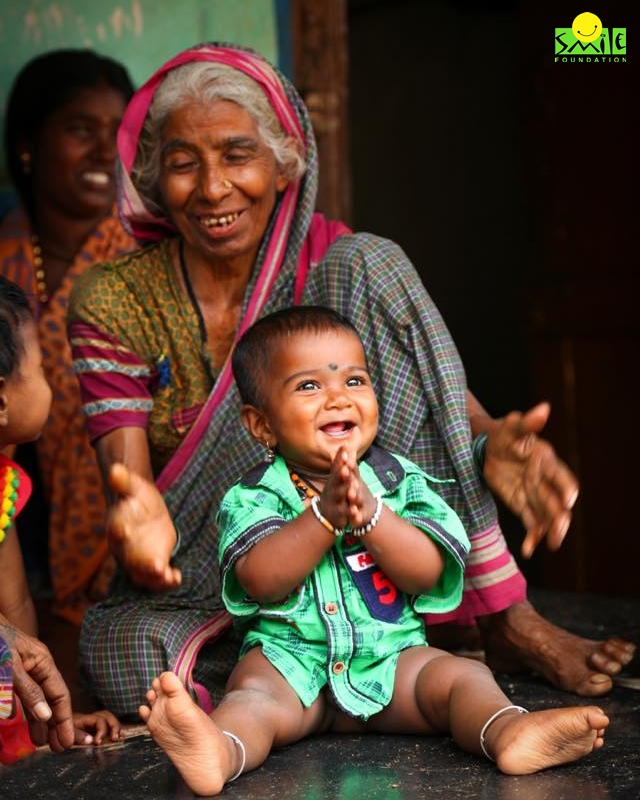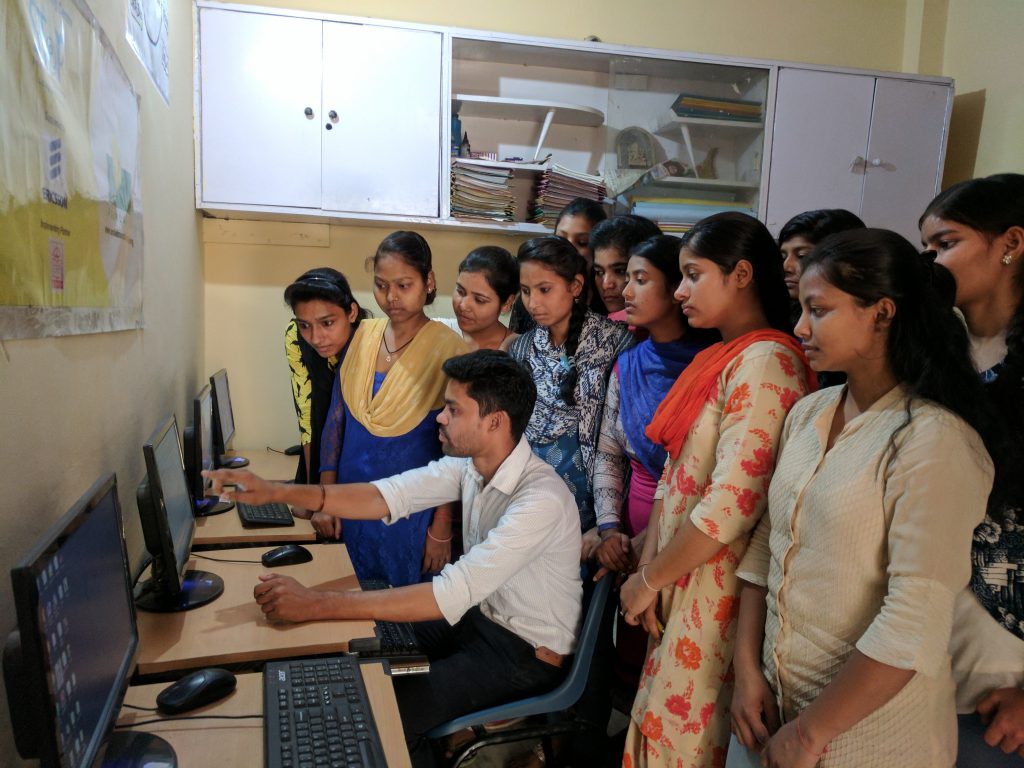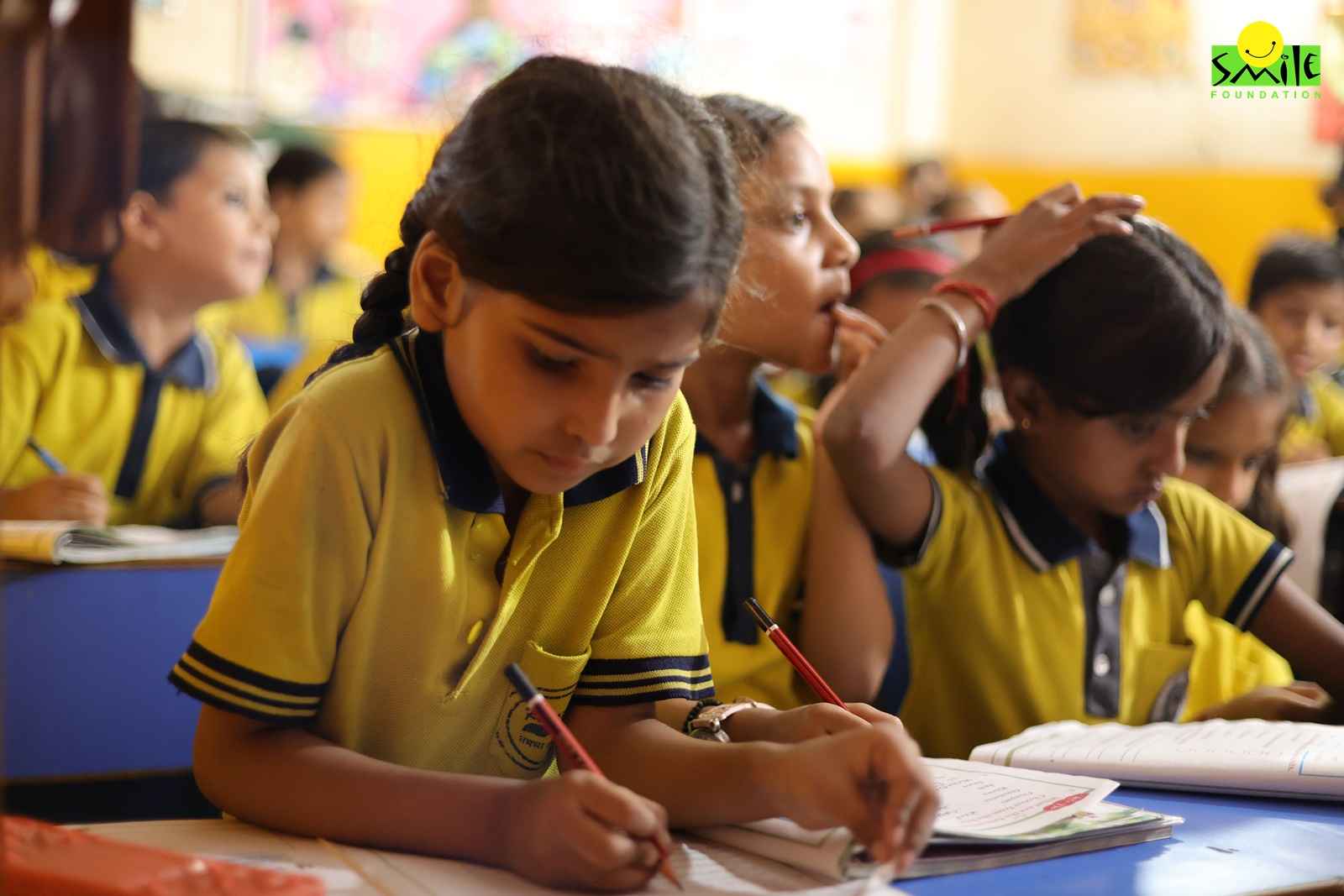New research findings featured in the Progress towards the Sustainable Development Goals (SDG) Collection within the prestigious Nature Journal underscores the significance of the first 1000 days of a child’s life in shaping their future well-being and growth. These studies offer invaluable insights that directly align with SDG 2, a global initiative working toward the goal of eradicating hunger entirely.
The first 1000 days of a child’s life, spanning from conception to the first three years, are a critical phase for growth and development. This period significantly influences a child’s future health, overall well-being, and cognitive abilities.
As part of Smile Foundation‘s women empowerment programme, Swabhiman focuses on the health and nutrition of pregnant women, lactating mothers, and children in various projects. Here is our understanding of the key milestones and factors that shape a child’s life during this time.
Prenatal Development (Day 1–Day 280)
The journey begins at conception and progresses over the following nine months. During this period, the fetus undergoes rapid growth and development. The first trimester witnesses the formation of vital organs and the heart, while the second trimester sees the emergence of limbs and sensory organs. The third trimester is marked by significant brain development.
Ensuring the well-being of pregnant women and their unborn children is paramount during this crucial period. Our efforts focus on providing essential guidance, including completing all necessary prenatal check-ups, regular consumption of iron-folic acid tablets, and emphasizing the importance of institutional delivery.
We also conduct Godh Bharai ceremonies with the support of Aanganwadi workers and ASHAs to educate on affordable, nutritious food, dispel food-related myths, and promote birth preparedness. We inform them about government schemes aimed at enhancing maternal and child health.
Birth and Infancy (Day 281–Day 365)
The first year of a child’s life is marked by remarkable milestones. In the early months, babies learn to focus their vision, recognize faces, and even respond with a smile to stimuli. By six months, many begin to crawl, and some take their first steps. This period witnesses rapid brain development as neural connections form at an astonishing pace.
Nutrition during infancy is of utmost importance. Breastfeeding is recommended for the first six months, providing essential nutrients and immune support. As infants begin to explore solid foods, it’s important to introduce a variety of nutritious options.
Introducing solid foods along with breast milk after six months of exclusive breastfeeding is vital for a baby’s healthy growth. To emphasize this, we organize an Ann Prashan Diwas with Anganwadi workers at the Anganwadi centers, introducing home-cooked complementary feed to the infant and educating mothers on the importance of providing home-cooked complementary foods to meet their child’s nutritional needs.
Toddlerhood (Day 366–Day 1000)
Children enter the toddler phase from ages one to three, marked by increased mobility and cognitive development. They begin to speak, form attachments, and explore their environment. Language development is crucial during this stage, as it helps children express their needs and emotions. Parents and caregivers play a pivotal role in providing a nurturing and stimulating environment.
Nutrition remains crucial during this stage, as a balanced diet is needed to support physical and cognitive growth. Toddlers may exhibit picky eating habits, but providing a variety of healthy foods is essential. Monitoring vitamin and mineral intake is vital for proper development.
In our effort to promote child nutrition, we conduct sessions on low-cost, high-nutrition recipes with mothers, utilizing locally available, affordable ingredients rich in nutrients. We emphasize the health and hygiene benefits of homemade foods for their children, encouraging mothers to prioritize home-cooked meals, and promoting better nutrition and overall well-being for their kids.
Early Learning
Enriching the environment of a child with books, toys, and interactive play can significantly impact their cognitive development. Reading to a child from a young age fosters a love for learning and language skills.
Stimulation and Interaction
Children thrive when exposed to a stimulating and interactive environment. Playtime, conversation, and exploration are all critical components of this developmental phase.
Attachment and Emotional Development
In addition to physical development, emotional bonding is a crucial element. Parents play a central role in providing love, security, and support. Attachment to caregivers is vital for a child’s emotional well-being and sets the foundation for future relationships.
The role of play in a child’s life cannot be overstated. Play is how children explore, learn, and develop their creativity. Simple toys, games, and interaction with parents and peers stimulate cognitive and motor skills.
The 1,000-day period presents challenges, with sleepless nights, the “terrible twos,” and various childhood illnesses. Patience and understanding are essential qualities for caregivers during this time.
Healthcare and Immunizations
Regular medical check-ups and immunizations are essential to monitor a child’s health and protect them from preventable diseases. Early interventions can address any developmental delays or health issues.
During group meetings and one-on-one counseling sessions, we emphasize to parents the importance of timely child immunization. We encourage them to consult a doctor promptly if their child falls ill and to openly share all relevant health information about their child. This ensures that the child receives appropriate and timely medical care for their well-being.
Environmental Factors
A child’s environment significantly influences their development. A stable and loving home, access to education, and a safe neighborhood are all factors that contribute to a child’s well-being. Exposure to adverse childhood experiences (ACEs) can have long-lasting negative effects.
Language Development
Language skills rapidly develop during these 1,000 days. Children progress from babbling to forming simple words and sentences. Exposure to a rich language environment, where they hear and interact with diverse vocabulary, is crucial.
In every activity, we emphasize to parents that proper nutrition and hygiene are vital for their children’s growth and development. Good hygiene practices, such as regular handwashing and cleanliness, are essential to prevent illness and promote overall well-being, complementing a balanced diet for a healthier, happier future.
First 1000 Days of Milestones and Memories
In conclusion, the first 1,000 days from pregnancy to a child’s third year are a profoundly transformative period filled with milestones and memories. This is a time of immense growth, exploration, and bonding. Proper prenatal care, nutrition, healthcare, and positive interaction with caregivers are crucial to ensure a child’s optimal development. It’s a journey where parents and caregivers play a central role in nurturing a child’s physical and emotional development. These early experiences set the stage for a child’s future, making this period both challenging and enriching.









